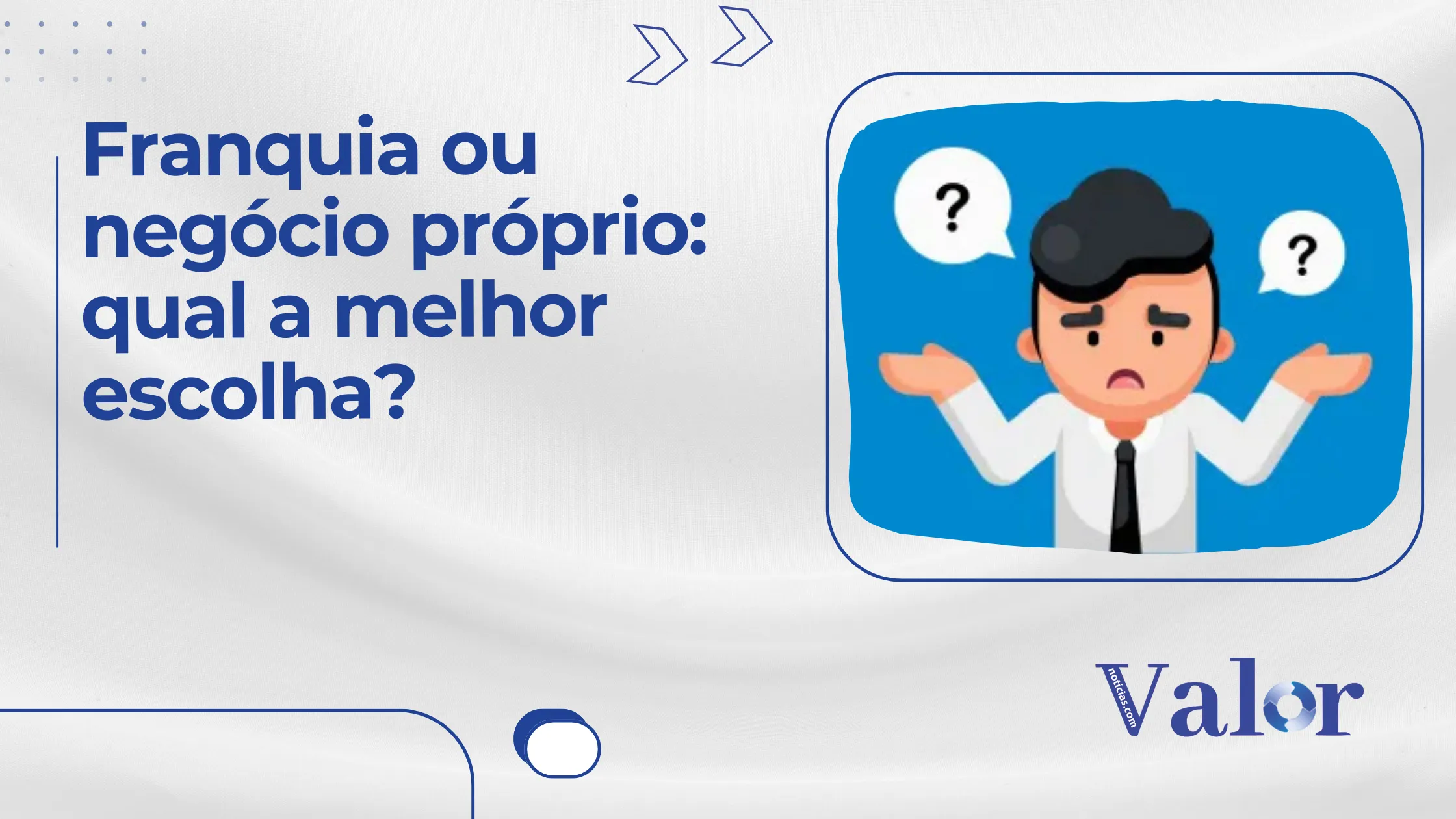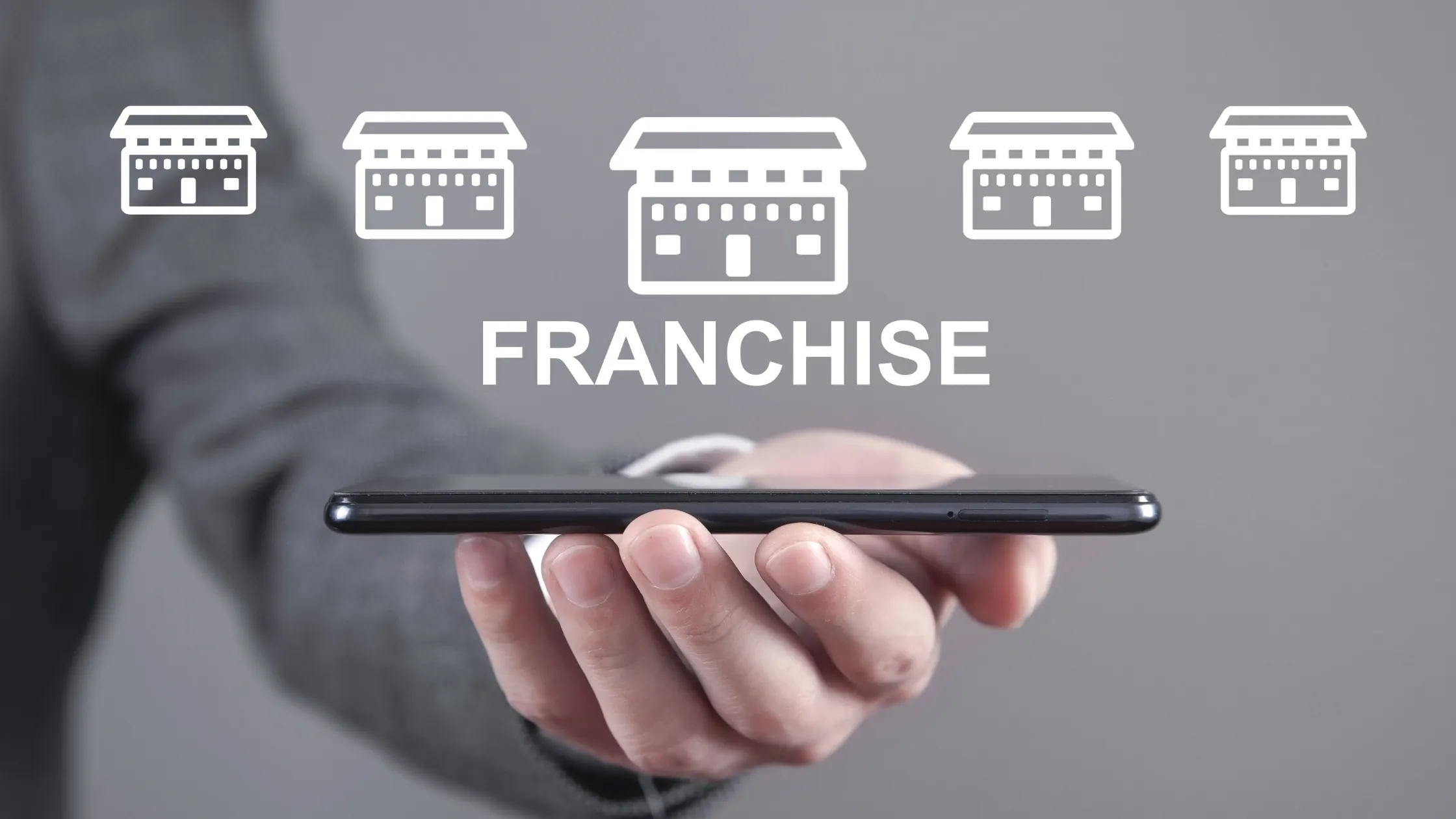Franchise or own business: which is the best choice?

Franchise or own business: which is the best choice?
Advertisements
Choosing between opening a franchise or investing in your own business is a decision that challenges many entrepreneurs.
This question is not trivial, as it involves an in-depth analysis of the personal profile, available capital, risk appetite and long-term objectives.
After all, which path offers more security, autonomy and growth potential?
To answer this question, it's essential to understand the characteristics, advantages, and disadvantages of each model, as well as reflect on what really matters to you as an entrepreneur.
Continue reading and find out more:
Understanding the fundamental differences

Franchising is a business model in which the entrepreneur acquires the right to use an already established brand, following an operating system standardized by the franchisor.
This means you don't need to reinvent the wheel: the business model, suppliers, marketing, and processes are already tested and structured.
Classic examples are chains like McDonald's and O Boticário, where the franchisee replicates a proven successful model.
On the other hand, your own business is born from your idea, creativity and effort to build a brand from scratch.
You have complete freedom to define your positioning, product or service mix, company culture, and growth strategies.
++ Easter Jobs: 7 Ways to Make Extra Money Without Spending a Lot
This autonomy, however, comes with full responsibility for all aspects of the business, from planning to daily execution.
This distinction is crucial because it directly impacts the degree of control you will have and the risk you are willing to take.
While franchising offers a more structured and supported path, owning your own business is fertile ground for innovation and customization, but with greater uncertainty.
Advantages and Disadvantages: A Detailed Look

Franchising: Security and support versus limited autonomy

One of the biggest advantages of franchising is the immediate credibility the brand offers.
This makes it easier to attract customers and negotiate with suppliers and financial institutions.
Additionally, franchisor support, which includes training, marketing, and consulting, reduces the learning curve and increases the chances of success.
++ Financial Spreadsheet: How to Create and Use One to Control Your Expenses
According to data from SEBRAE, around 80% of self-owned businesses close in the first five years.
While this rate drops to approximately 15% in the franchise universe, demonstrating greater stability in this model.
However, this security comes at a cost: autonomy is restricted.
The franchisee must follow strict rules to maintain the brand's identity, which limits innovation and rapid adaptation to market changes.
Furthermore, the initial investment is often high, including franchise fees and royalties, which can be a barrier for those with limited capital.
Own business: creative freedom and greater profit potential, but with risks

In their own business, the entrepreneur enjoys complete freedom to shape their company according to their vision.
This allows for constant innovation, flexibility to adjust strategies, and the building of a unique brand that can become a competitive differentiator.
Furthermore, the financial return can be more significant, as there are no fees to pay to third parties.
However, this freedom comes with significant challenges.
Building a brand from scratch requires time, effort, and investment in marketing to gain the public's trust.
Financial planning is more complex as there is no historical data to predict return on investment.
Furthermore, the entrepreneur needs to manage all suppliers, processes, and risks, which can be exhausting and require multiple skills.
Practical example to illustrate
Imagine two entrepreneurs who want to open a coffee shop.
The first option is to choose a franchise from a well-known chain, which already has approved suppliers, a standardized menu, and national marketing campaigns.
He invests a large amount initially, but relies on the franchisor's support for training and management, which reduces the risk of failure.
The second entrepreneur decides to open his own coffee shop, creating a brand that values specialty coffees and a cozy atmosphere, with its own visual identity and personalized menu.
He invests less initially, but needs to develop his customer base, negotiate with suppliers and build his reputation in the market, facing greater uncertainties.
Both have the potential for success, but each person's profile, resources, and goals determine which path is most suitable.
Franchise or own business: Analogy for reflection
Choosing between a franchise or your own business is like deciding between following a trail already marked in the forest or blazing your own trail.
The ready-made trail offers safety, fewer obstacles, and clear guidance, but limits the freedom to explore.
Forging your own path allows you to discover new landscapes and create a unique route, but it requires more effort, courage, and adaptability.
Comparison Table: Franchise vs. Own Business
| Aspect | Franchise | Own Business |
|---|---|---|
| Autonomy | Limited, strict rules | Total freedom to innovate |
| Initial investment | Generally high (fees and royalties) | Variable, may be low |
| Risk | Smaller, tested model | Bigger, it depends on the entrepreneur |
| Support | Ongoing training and consulting | Self-managed, seeking external support |
| Time to return | Medium to short term | It can be long |
| Flexibility | Low, mandatory standardization | High, rapid adaptations possible |
| Brand recognition | Immediate, consolidated brand | Gradual, building from scratch |
Are you willing to give up some of your autonomy to have more security, or would you rather take the risk and build something entirely your own?
Impact of choice on the entrepreneur's profile and management style
The decision between a franchise or owning a business doesn't just depend on financial or market factors, but is also deeply linked to the entrepreneur's personal profile and management style.
Understanding these nuances can make all the difference in the success of your business.
Entrepreneurs who value autonomy, enjoy innovation, and have a creative spirit tend to identify more with their own business.
They are willing to take bigger risks, learn from mistakes, and shape every detail of the company according to their beliefs and market vision.
This profile appreciates the freedom to test strategies, adjust products, and create a unique organizational culture, even if it means facing constant uncertainty and challenges.
On the other hand, those who prefer a more structured path, with already defined processes and ongoing support, generally find franchising to be the best option.
This profile tends to be more conservative, seeks to minimize risks and values the support of a consolidated brand.
Additionally, the franchisee can focus more on day-to-day operations.
Therefore, with training and guidance that facilitate management, it is ideal for those who are still gaining experience in the business world.
This reflection on the entrepreneurial profile is essential because, regardless of the model chosen, success depends on the harmony between the business and the manager's personal characteristics.
After all, a business aligned with the style of its founders is more likely to prosper and adapt to market changes.
So, before you decide, ask yourself: which environment motivates me more: creative freedom or the security of a tested system?
Franchise or own business: Frequently Asked Questions
1. Franchise or own business: which is best for beginners?
For those with little experience, franchising is often the best option, as it offers a proven business model, support, and training, reducing initial risks.
2. Is it possible to start your own business with little money?
Yes, especially in the digital environment, where it is possible to create virtual stores with low initial investment, using platforms that offer integrated tools for sales and logistics.
3. What are the main hidden costs of a franchise?
In addition to the initial investment, there are periodic fees such as royalties, advertising and possible costs for adapting the commercial location.
4. How do I know if my profile is more suitable for a franchise or my own business?
Assess your risk appetite, need for autonomy, management experience, and capital availability.
More conservative profiles tend to prefer franchises, while innovative and independent profiles prefer their own businesses.
5. Which model has the greatest profit potential?
Owned businesses can offer a higher profit margin, as there are no royalties to be paid, but they also carry greater risk.
Franchises have lower margins but greater stability.
Deciding between a franchise or your own business requires deep reflection on your profile, resources and objectives.
Both paths offer valuable opportunities, but also distinct challenges.
The right choice is the one that aligns your entrepreneurial vision with the market reality and your personal expectations.
After all, entrepreneurship is, above all, a journey of self-knowledge and courage.
